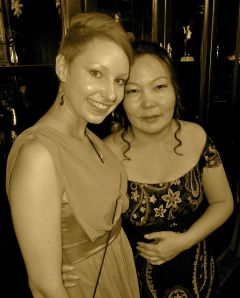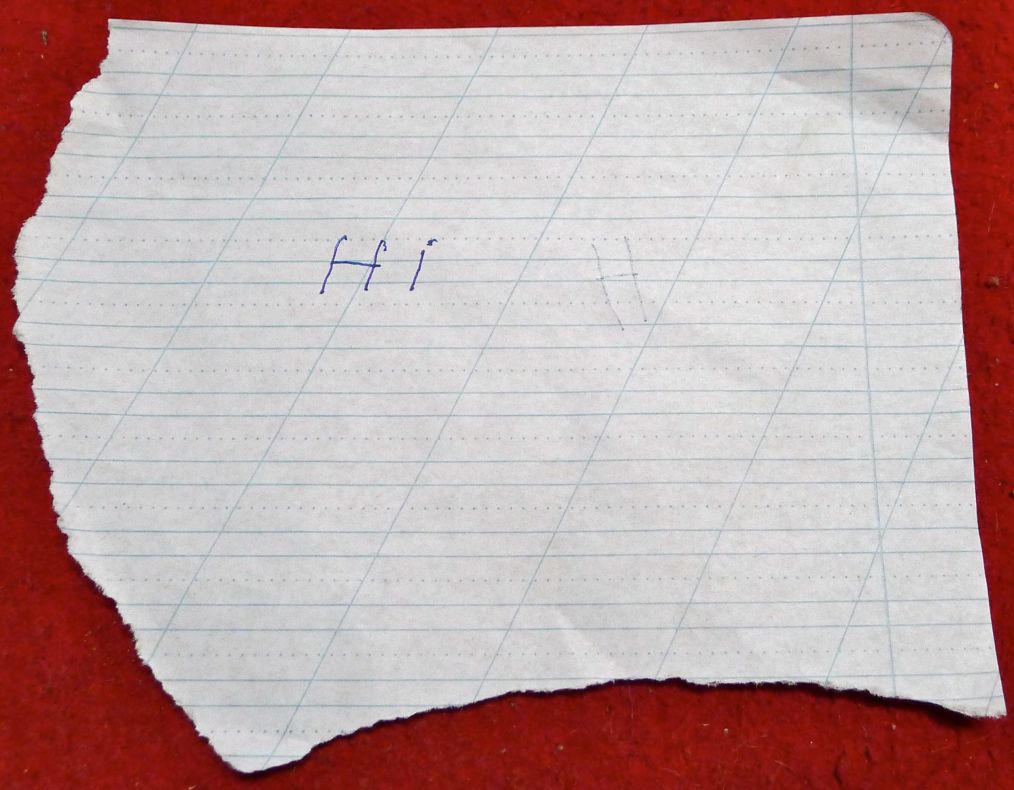I had never heard the name Primo Levi before reading it in an essay by Ursula K. Le Guin. She described this person as ‘a writer who never spoke anything but the truth, who lived a year in Auschwitz, and knew about injustice.’ I was intrigued, but it wasn’t until I came across his name again a short time later in something Anne Lamott said, where, again, he was described as a wise soul and speaker of truth. If two of my most admired authors admire the same person, there’s probably something to that. So I decided to find out what that something was, and I borrowed his book Survival in Auschwitz from the library, only to discover that it was so breathtakingly powerful that I needed to read his follow-up book The Reawakening as soon as I could. His writing is meditative– there is truth, yes, but it is often under the guise of a penetrating understanding of human weakness. Yet he writes without judgment, and in doing so allows his readers to judge for themselves. As he explains,
“I must admit that if I had in front of me one of our persecutors of those days, certain known faces, certain old lies, I would be tempted to hate, and with violence too; but exactly because I am not a Fascist or a Nazi, I refuse to give way to this temptation. I believe in reason and in discussion as supreme instruments of progress, and therefore I repress hatred even within myself: I prefer justice. Precisely for this reason, when describing the tragic world of Auschwitz, I have deliberately assumed the calm, sober language of the witness, neither the lamenting tones of the victim nor the irate voice of someone who seeks revenge. I thought that my account would be all the more credible and useful the more it appeared objective and the less it sounded overtly emotional; only in this way does a witness in matters of justice perform his task, which is of preparing the ground for the judge. The judges are my readers.”
And so, as readers, it is our job to listen carefully and to listen well, for Levi has much to say, and ours is no small task.
At the beginning of Survival in Auschwitz, he writes that he knew he had to survive if only to let the outside world know what happened:
“The need to tell our story to ‘the rest’, to make ‘the rest’ participate in it, had taken on for us, before our liberation and after, the character of an immediate and violent impulse, to the point of competing with our other elementary needs. The book has been written to satisfy this need: first and foremost, therefore, as an interior liberation.
[…]
We are in fact convinced that no human experience is without meaning or unworthy of analysis, and that fundamental values, even if they are not positive, can be deduced from this particular world which we are describing. We would also like to consider that the Lager was pre-eminently a gigantic biological and social experiment.”
He goes on to describe the human psyche in a way most of never consider, that survival is not just based on having a goal but that even the moment-to-moment petty disturbances act as something to which our minds– and our survival– can cling:
“Sooner or later in life everyone discovers that perfect happiness is unrealizable, but there are few who pause to consider the antithesis: that perfect unhappiness is equally unattainable. The obstacles preventing the realization of both these extreme states are of the same nature: they derive from our human condition which is opposed to everything infinite.
[…]
It was the very discomfort, the blows, the cold, the thirst that kept us aloft in the void of bottomless despair, both during the journey and after. It was not the will to live, nor a conscious resignation; for few are the men capable of such resolution, and we were but a common sample of humanity.”
However, once Levi and the others reached the camp, the devolution of their spirits was swift, and the toll it took was immense:
“Then for the first time we became aware that our language lacks words to express this offence, the demolition of a man. In a moment, with almost prophetic intuition, the reality was revealed to us: we had reached the bottom. It is not possible to sink lower than this; no human condition is more miserable than this, nor could it conceivably be so. Nothing belongs to us any more; they have taken away our clothes, our shoes, even our hair; if we speak, they will not listen to us, and if they listen, they will not understand. They will even take away our name: and if we want to keep it, we will have to find ourselves the strength to do so, to manage somehow so that behind the name something of us, of us as we were, still remains.
[…]
Imagine now a man who is deprived of everyone he loves, and at the same time of his house, his habits, his clothes, in short, of everything he possesses: he will be a hollow man, reduced to suffering and needs, forgetful of dignity and restraint, for he who loses all often easily loses himself.”
In fact, the image that comes to Levi’s mind when he thinks of the atrocities that happened in Auschwitz is that of the man who has lost himself:
“They [the Muselmänner] crowd my memory with their faceless presences, and if I could enclose all the evil of our time in one image, I would choose this image which is familiar to me: an emancipated man, with head dropped and shoulders curved, on whose face and in whose eyes not a trace of a thought is to be seen.”
But though the Muselmänner may have lost himself completely, no man remained entirely whole. Survival in Auschwitz did not reflect just one human characteristic that some may have had and others didn’t; it reflected all the ways we as humans are willing to sacrifice in our determination to live. It was a rare person who didn’t have to stoop below his own morality in an attempt to save himself.
“Many were the ways devised and put into effect by us in order not to die: as many as there are different human characters. All implied a weakening struggle of one against all, and a by no means small sum of aberrations and compromises. Survival without renunciation of any part of one’s own moral world– apart from powerful and direct interventions by fortune– was conceded only to very few superior individuals, made of the stuff of martyrs and saints.”
And yet, similar to the idea Levi brought up in the beginning about happiness and unhappiness, he brings up another interesting part of human nature that we may overlook in easier circumstances: the phenomenon of having something to feel fortunate, despite being mired in misfortune.
“Strange, how in some way one always has the impression of being fortunate, how some chance happening, perhaps infinitesimal, stops us crossing the threshold of despair and allows us to live. It is raining, but it is not windy. Or else, it is raining and is also windy: but you know that this evening it is your turn for the supplement of soup, so that even today you find the strength to reach the evening. Or it is raining, windy and you have the usual hunger, and then you think that if you really had to, if you really felt nothing in your heart but suffering and tedium — as sometimes happens, when you really seem to lie on the bottom — well, even in that case, at any moment you want you could always go and touch the electric wire-fence, or throw yourself under the shunting trains, and then it would stop raining.”
Thankfully for us, Levi never had to resort to touching the fence or throwing himself under a train. Before his second winter and amidst the deepest doubts that it would ever happen (“Do you know how one says ‘never’ in camp slang? ‘Morgen früh‘, tomorrow morning.”), the Russians liberated the camp, though this doesn’t mean it ceases to haunt Levi.
“Because one loses the habit of hoping in the Lager, and even if believing in one’s own reason. In the Lager it is useless to think, because events happen for the most part in an unforeseeable manner; and it is harmful, because it keeps alive a sensitivity which is a source of pain, and which some providential natural law dulls when suffering passes a certain limit.
[…]
It is man who kills, man who creates or suffers injustice; it is no longer man who, having lost all restraint, shares his bed with a corpse. Whoever waits for his neighbour to die in order to take his piece of bread is, albeit guiltless, further from the model of thinking man than the most primitive pigmy or the most vicious sadist.”
No one should have to experience that, should be forced to reach a place to have figured that out. And yet he did. Millions did. For what? What possible explanation could there be for such a time in our history? Levi tells us that it is better not to understand.
“Perhaps one cannot, what is more one must not, understand what happened, because to understand is almost to justify.
[…]
We cannot understand it [Nazi hatred], but we can and must understand from where it springs, and we must be on our guard. If understanding is impossible, knowing is imperative, because what happened could happen again. Conscience can be seduced and obscured again– even our consciences.
[…]
Monsters exist, but they are too few in number to be truly dangerous. More dangerous are the common men, the functionaries ready to believe and to act without asking questions….
[…]
It is, therefore, necessary to be suspicious of those who seek to convince us with means other than reason, and of charismatic leaders: we must be cautious about delegating to others our judgment and our will. Since it is difficult to distinguish true prophets from false, it is as well to regard all prophets with suspicion. It is better to renounce revealed truths, even if they exalt us by their splendor or we find them convenient because we can acquire them gratis. It is better to content oneself with other more modest and less exciting truths, those one acquires painfully, little by little and without shortcuts, with study, with discussion, and reasoning, those that can be verified and demonstrated.”
Who could resist admiring such a man?







